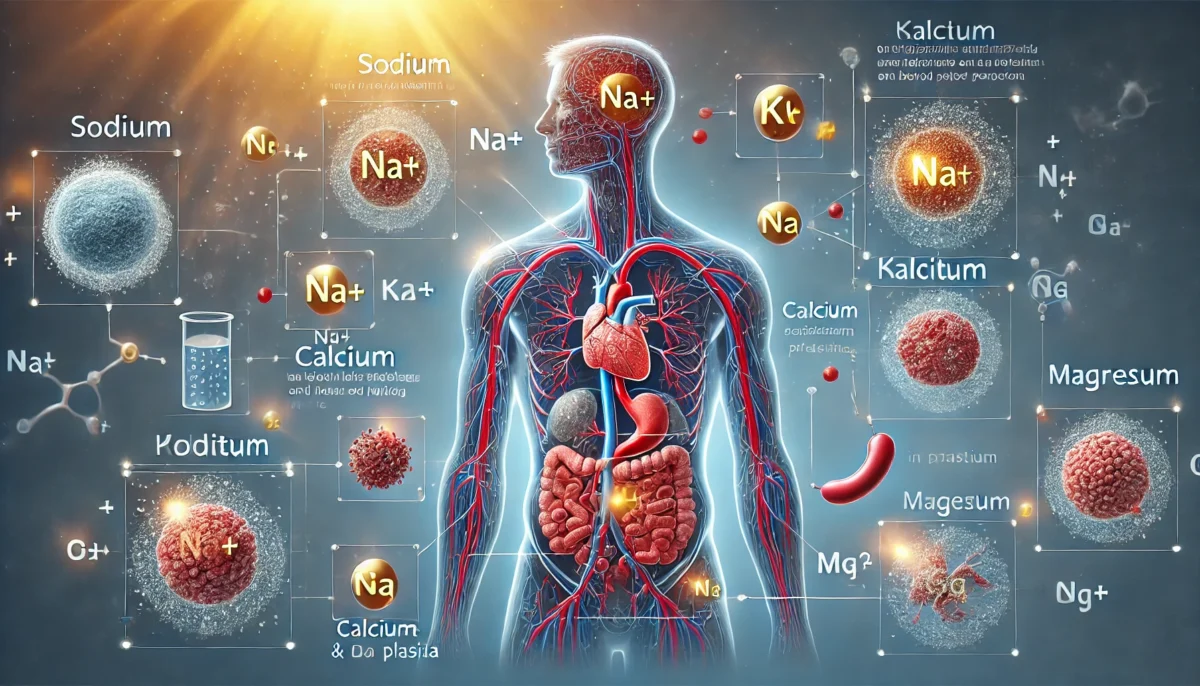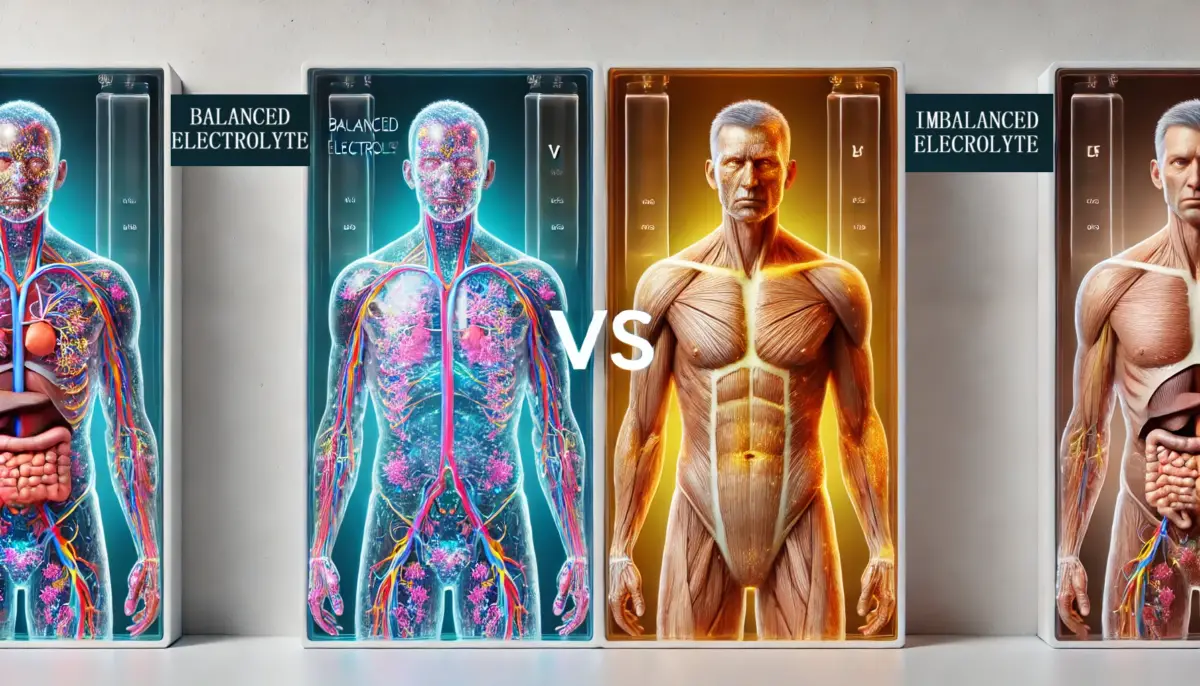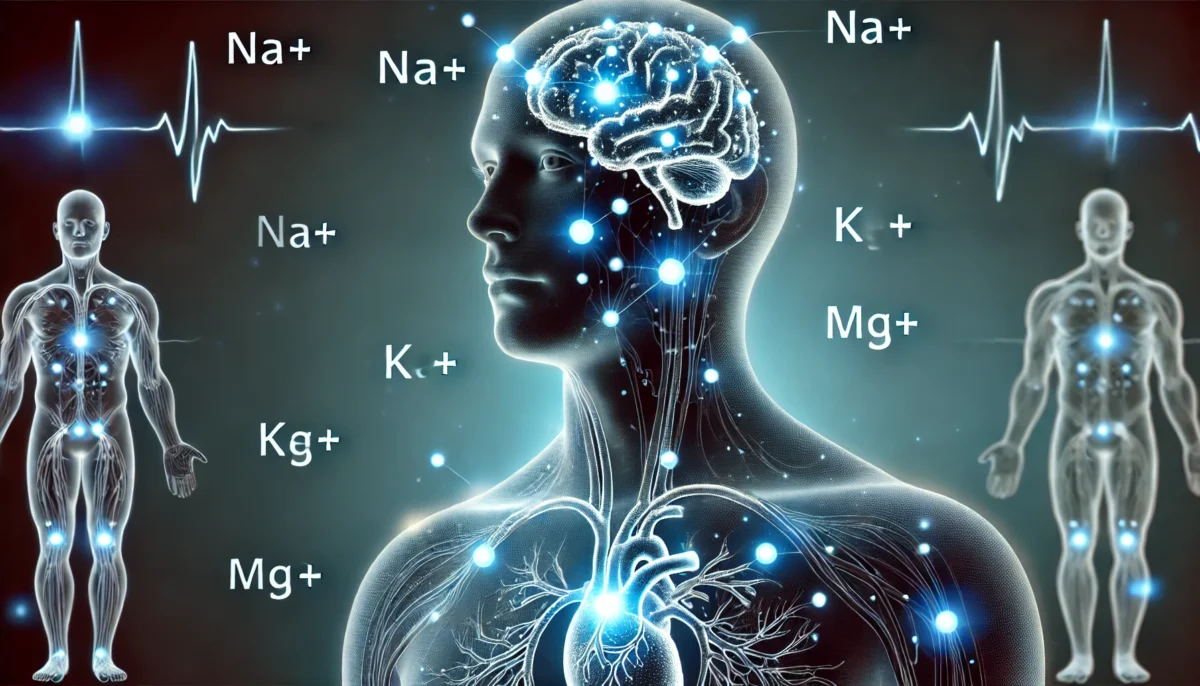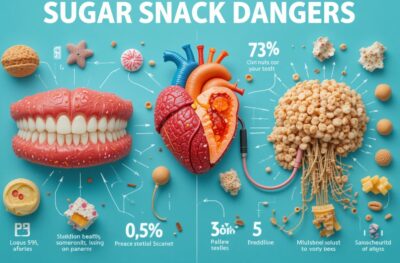What Is Electrolyte Balance and Why Is It Essential for Health?
Maintaining electrolyte balance is critical for overall health and proper body function. Electrolytes, such as sodium, potassium, calcium, and magnesium, play vital roles in regulating numerous physiological processes. But how can you ensure your body maintains the right balance of these essential minerals?
Table of contents
- What Is Electrolyte Balance and Why Is It Essential for Health?
- 1. What Are Electrolytes and Their Functions?
- 2. Why Is Electrolyte Balance Crucial for Health?
- 3. What Causes Electrolyte Imbalances?
- 4. How to Detect Electrolyte Imbalances?
- 5. How to Restore Electrolyte Balance?
- 6. How to Prevent Electrolyte Imbalances?
- 7. What Role DO Electrolytes Play in Specific Groups?
- 8. FAQs About Electrolyte Balance
- Conclusion
- FAQ About Electrolyte Balance
1. What Are Electrolytes and Their Functions?
Electrolytes are minerals that carry an electrical charge when dissolved in body fluids, such as blood, sweat, and urine. These ions are vital for several key functions, including:
- Regulating fluid balance: Electrolytes control water distribution across cells and tissues.
- Supporting muscle contractions: Sodium, potassium, and calcium enable muscle fibers to contract and relax.
- Maintaining nerve function: Electrolytes facilitate the transmission of nerve impulses.
- Balancing pH levels: Electrolytes help stabilize the body’s acid-base balance.
- Supporting cardiovascular health: Potassium and calcium contribute to normal heart rhythms.

2. Why Is Electrolyte Balance Crucial for Health?
Electrolyte imbalances can lead to serious health issues. Here are common consequences of imbalance:
- Dehydration: Insufficient electrolytes impair fluid retention, leading to dehydration.
- Muscle cramps: Low potassium or magnesium levels can cause painful cramps.
- Heart irregularities: Imbalances in calcium or potassium may lead to arrhythmias.
- Neurological issues: Abnormal sodium levels can result in confusion or seizures.
Example: A Case of Severe Dehydration
A 35-year-old runner experienced nausea and cramps during a marathon. The cause? Significant sodium loss due to sweating, coupled with inadequate electrolyte replenishment. This highlights the importance of maintaining electrolyte levels during intense physical activities.

3. What Causes Electrolyte Imbalances?
Several factors can disrupt electrolyte balance:
a. Inadequate Intake
Failing to consume enough electrolytes through diet leads to deficiencies. Foods rich in electrolytes include:
- Sodium: Found in table salt and processed foods (in moderation).
- Potassium: Present in bananas, oranges, and spinach.
- Calcium: Found in dairy products, almonds, and fortified plant milk.
- Magnesium: Available in nuts, seeds, and whole grains.
b. Excessive Loss
Electrolytes are lost through sweat, urine, and vomit. Common causes include:
- Intense exercise: Results in significant sodium and potassium depletion.
- Diarrhea and vomiting: Lead to rapid fluid and electrolyte loss.
- Chronic illnesses: Kidney disorders or diabetes can impair electrolyte balance.
c. Medical Conditions and Medications
Certain medications, such as diuretics, can deplete potassium and magnesium levels, while hormonal imbalances may disrupt sodium regulation.
4. How to Detect Electrolyte Imbalances?
a. Symptoms
Common signs include:
- Muscle weakness or cramps
- Fatigue and lethargy
- Confusion or irritability
- Irregular heartbeat
b. Medical Tests
Blood and urine tests are essential for diagnosing electrolyte imbalances. These tests measure levels of sodium, potassium, calcium, and magnesium.
5. How to Restore Electrolyte Balance?
a. Through Diet
Incorporating balanced meals is the most effective way to maintain electrolytes. A healthy diet should include:
- Fruits: Bananas, oranges, and avocados are potassium-rich.
- Vegetables: Leafy greens like spinach provide magnesium and calcium.
- Proteins: Fish, eggs, and lean meats offer essential nutrients.
b. Hydration
Drinking fluids with electrolytes, such as:
- Sports drinks: Beneficial during intense workouts.
- Coconut water: A natural source of potassium.
- Homemade oral rehydration solutions: Mix water, salt, and sugar.
c. Supplementation
In cases of severe deficiency, doctors may recommend supplements. Always consult a healthcare professional before taking any supplements.
6. How to Prevent Electrolyte Imbalances?
a. Stay Hydrated
Monitor your water intake, especially during physical activities. Drink water consistently throughout the day, and consider electrolyte-rich beverages when sweating excessively.
b. Monitor Diet
Maintain a diverse and nutrient-dense diet. Limit excessive salt intake to prevent sodium imbalance.
c. Understand Your Body
Pay attention to signs of imbalance, such as muscle cramps or fatigue, and take corrective measures promptly.
Practical Tip: Daily Sodium Needs
The World Health Organization (WHO) recommends consuming less than 5 grams of salt per day to reduce health risks.

7. What Role DO Electrolytes Play in Specific Groups?
a. Athletes
High-performance athletes lose significant electrolytes through sweat. Regular hydration and electrolyte replacement are essential to maintain endurance and prevent dehydration.
Example: Research Insights
A 2022 study in the Journal of Sports Science found that electrolyte supplementation improved endurance in marathon runners by 15% compared to water alone.
b. people older than 70
Aging reduces the body’s ability to regulate electrolytes. People older than 70 should monitor their intake to prevent complications such as dehydration or kidney issues.
8. FAQs About Electrolyte Balance
Q1: Can I Overconsume Electrolytes?
Yes. Excessive intake of certain electrolytes, such as sodium, can lead to hypertension and cardiovascular risks.
Q2: Are Electrolyte Drinks Always Necessary?
No. Electrolyte drinks are beneficial during high-intensity activities or extreme heat but are unnecessary for most daily activities.
Conclusion
Electrolyte balance is essential for maintaining health, supporting bodily functions, and preventing complications. By adopting a balanced diet, staying hydrated, and understanding your body’s needs, you can ensure optimal electrolyte levels. Remember, even small lifestyle changes can significantly impact your health and well-being.
FAQ About Electrolyte Balance
1. What happens if I consume too much sodium?
Overconsumption of sodium can lead to high blood pressure, increased risk of heart disease, and kidney damage. It’s essential to limit your daily sodium intake as recommended by health professionals.
2. Can electrolyte imbalances affect mental health?
Yes, imbalances in electrolytes like sodium or calcium can lead to confusion, irritability, and even depression in severe cases. Proper electrolyte levels are vital for brain function and mood stability.
3. Are natural sources of electrolytes better than supplements?
Generally, natural sources like fruits, vegetables, and dairy products are more balanced and provide additional nutrients. However, supplements may be necessary for individuals with specific deficiencies or medical conditions.
4. Is coconut water an effective alternative to sports drinks?
Yes, coconut water is a natural source of potassium and can be a good alternative to sports drinks. However, it may lack sufficient sodium for replenishment after intense exercise.
5. Do people with kidney disorders need to manage electrolytes differently?
Yes, individuals with kidney disorders should closely monitor their electrolyte intake. The kidneys play a critical role in balancing electrolytes, and dysfunction can lead to serious imbalances. Always consult a healthcare provider for personalized advice.
6. How does sweating affect electrolyte levels?
Sweating leads to the loss of key electrolytes, particularly sodium and potassium. Rehydration with water and electrolyte-rich drinks is crucial after intense physical activity or exposure to high temperatures.
7. What is the best way to monitor electrolyte balance at home?
Pay attention to symptoms such as muscle cramps, fatigue, or irregular heartbeat. For accurate assessment, regular blood tests may be necessary, especially if you have a medical condition affecting electrolyte levels.
8. Can a low-carb or keto diet impact electrolyte balance?
Yes, low-carb diets can lead to increased loss of sodium, potassium, and magnesium through urine. It’s essential to replenish electrolytes through diet or supplements while following such diets.
9. Why is magnesium important for muscle and nerve function?
Magnesium helps regulate muscle contractions, prevent cramps, and ensure proper nerve signal transmission. Low magnesium levels can cause weakness, twitching, or spasms.
10. Do children need electrolyte supplements during physical activities?
For most children, water is sufficient during regular physical activities. Electrolyte drinks may be necessary for prolonged or intense activities in hot weather but should be used sparingly due to added sugars.
Sources:
- Harvard T.H. Chan School of Public Health
- Mayo Clinic
- WHO Nutrition Guidelines
Studies/Stats:
- Journal of Sports Science (2022): Electrolyte supplementation in endurance athletes.
- WHO daily sodium intake recommendations.
Image Resources:






